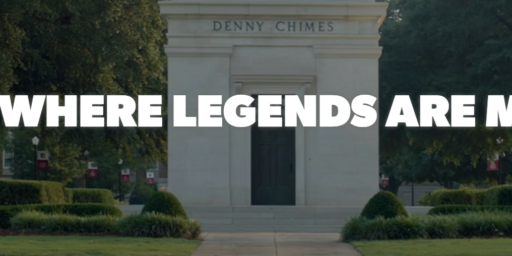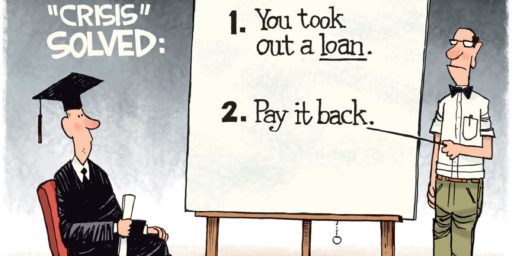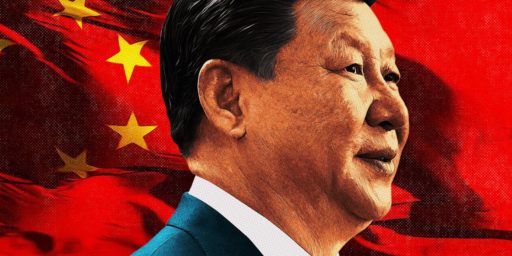The Coming College Credit Crunch
 There’s been surprisingly little discussion of the last-minute addition to the health care reform law that dramatically recast the federal role in student loans. As such, it’s no surprise that some provisions of that part of the bill that would have caused considerable controversy had the bill been brought to the floor in a more traditional manner. A sure candidate for chief among those must be the little noticed provision outlawing paying tuition with credit cards.
There’s been surprisingly little discussion of the last-minute addition to the health care reform law that dramatically recast the federal role in student loans. As such, it’s no surprise that some provisions of that part of the bill that would have caused considerable controversy had the bill been brought to the floor in a more traditional manner. A sure candidate for chief among those must be the little noticed provision outlawing paying tuition with credit cards.
Presumably intended to “protect” students from incurring massive amounts of high interest debt early in life (the conspiratorially-minded will say to prevent competition), the real result (as is so often the case) will actually be to put a major hurdle in the way of some such students getting their tuition paid on time – or at all.
Lots of students and their families use credit cards to bridge the gap between the tuition bill being due and loans or grants arriving. With the feds more or less taking over the sector, that problem is likely to become worse. So now students whose checks are delayed are deprived of the quick and easy — and almost always painless — fix of being able to put it on their plastic and simply pay it off when the tardy check arrives.
To make matters worse, another provision seems extend last year’s Credit Cardholder’s Bill of Rights Act to cap limits on those omnipresent student credit card offers. So those same students whose checks are late and who need to buy expensive books and/or supplies may also find themselves in another kind of bind.
Nothing about the add-on does anything to address the real problems with student debt. And even giving them the benefit of the doubt that these provisions were well-meaning, these are just the sort of ill-considered, paternalistic interference with decisions that college-age adults ought to be free to weigh and make for themselves, even in today’s day and age.






Maybe the feds don’t want to pay the processing fees for MC/Visa/Amex.
I don’t believe we are allowed to charge our Visa bills on our Amex cards, or pay down lines of credit on cards, so why would we necessarily allow kids to pay student loans on cards?
This is such a non-problem. Here’s what will happen: (1) bills will be paid late. (2) Late fees will be assessed. (3) Students will complain. (4) Fees charged to students who were waiting for financial aid will be waived.
Click the link:
April Fools.
Oy.
Such a good topic for a non April Fools though … it’s a deeply dysfunctional system. Federal loans help students short term, but have driven tuition inflation long term. Without the loan system tuition would be much lower. Colleges would have leveraged technology to deliver more for less.
It’s really sad that “affordable” has come to mean “backed by a $100K loan.”
Greetings:
I returned to college in ’93 after about 20 years. My experience was that a lot of student borrowing is not exactly used for intelligent or adult purposes. Things like new computers and spring break vacations seemed to flow in inordinate numbers after the arrival of the borrowed or granted funds. Wheedling for dollars seems to be an integral part of the student lifestyle.
Dodd, you magnificent bastard.
You bastard – you actually had me going there for a minute! Good job.
Seriously, though, a ban on paying your bill with a credit card would be a major pain in the ass. Instead, everybody would have to mail checks, make check payments over the phone, or do on-line checks, and that takes both more time and information.